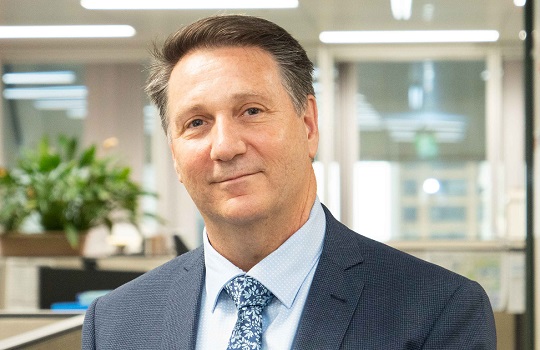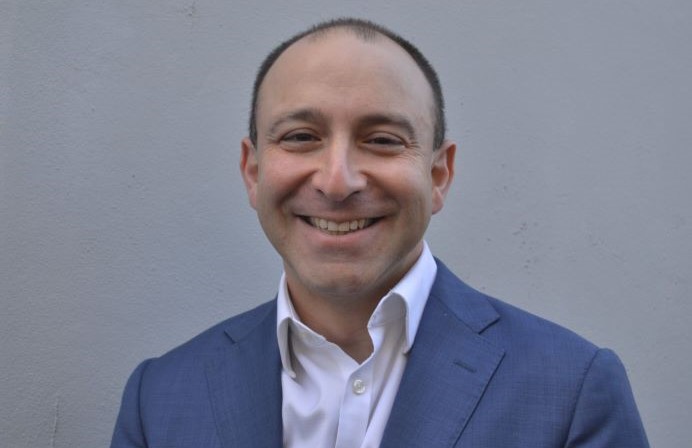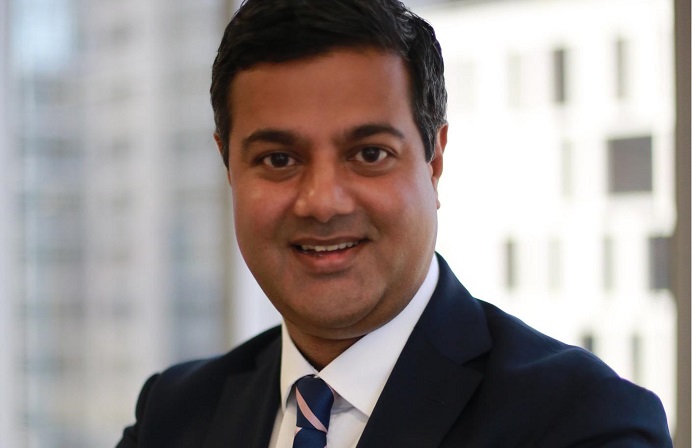
“There’s nothing that drives innovation like a crisis. And when you don’t have the alternatives that you’ve relied upon heavily in the past in that physical environment, you do start to look at how you can adapt quickly.”
In the early stages of Australia’s Covid-19 crisis response, Chris Fechner, Queensland’s chief customer and digital officer, joined us in a featured virtual panel presentation (jointly hosted by FST and ServiceNow) to discuss the Sunshine State’s pandemic preparations. It is worthwhile noting the CCDO’s comments in retrospect, and the swift work of the Government over past months to address state agencies’ Covid response as well as operational strategies to ensure service continuity during the lockdown period.
The issues Fechner raised are representative of many discussions FST has had with colleagues since March. Recognising the challenges and working collaboratively to solve them has, the QLD Government has acknowledged, been testing, exciting, and rewarding.
During the discussion, FST sought insight from Chris Fechner as to how QLD’s public agencies have adapted to this new remote working reality and adopted technologies for this unique ecosystem.
Below, we take a look at some of the CCDO’s key insights from the discussion, with Fechner revealing that:
- remote working capabilities are very different depending on what the service functions are;
- bandwidth is going to be a critical requirement for public agencies to work effectively;
- there is a need to address the configuration and incompatibilities between some of the tools used; and
- state agencies are managing one of the biggest transitions for the public service in recent years – shifting a significant number of people into remote working for the first time.
FST Government: Given that we’re likely to maintain this remote working arrangement for some time to come, even as we emerge out of mandated lockdowns, what new, innovative ways can be introduced to streamline this into a more seamless experience?
Fechner: One of the things that we’re recognising – and it’s a bit different than innovative; it’s more common sense – is that we’ve added more levels of complexity to try to do one specific thing with one particular tool. What we’re now recognising, especially when talking about the different collaboration tools that are being used, is that we need to go back to the ‘keep it simple’ principle and determine the minimum level of connectivity that we can establish: what’s the tool that we can get people to use consistently without a whole bunch of other abstraction layers, like not having to go through a certain platform, not having to do a specific tunnelling exercise to get through a VPN?
FST Government: The current shutdown has revealed the noticeable dearth of tools at agencies’ disposal that enable staff to work seamlessly from home. In this unique situation, we have an opportunity to get collaborative working really humming. What, if anything, do agencies need to change right now to operate more effectively in this new ecosystem?
Fechner: There’s nothing that drives innovation like a crisis. And when you don’t have the alternatives that you’ve relied upon heavily in the past in that physical environment, you do start to look at how you can adapt quickly. As public servants, we’re pushing to adapt to different ways of working. We’re starting with simple things, such as aligning chat services and particularly looking at: What is the etiquette? What are the controls? How do we effectively do it?
FST Government: How can the public sector leverage the right tools and resources to support employee collaboration, communication, and productivity in this ‘new normal’?
Fechner: I’ve seen comments talking about how we make sure that we’ve got the right performance levels. Historically, the focus may have been on activities that people have been doing. For example, are they getting through the tasks of the day? Whereas now, when you’re looking at a remote working capability, you need to have much more of a focus on the outcomes that you’re expecting to achieve, rather than the point-to-point tasks and the supervisory things that have previously been the focus. Perhaps, instead of KPIs, we end up with OKRs (objectives and key results) models. Mainly, we need to focus on understanding how we’ve made a difference. Figures that show the number of people that are able to undertake telehealth services offer good indicators as to whether we’re able to enact the change. So, as we produce new services in Queensland Government that allow a digital version of what used to be physical, are citizens taking it up? Is it actually helping them to get through this really difficult time?
More so than having a whole bunch of new technologies that are forced into the environment, we need to think of what are the most important outcomes that we’re looking to achieve now. From there, we can underpin such efforts with the tools that are required to make those outcomes reliable.
FST Government: Give us a sense of some of the conversations that are happening between private and public sectors in supporting a more fruitful collaborative working relationship.
Fechner: It’s not just the ideas and offers coming through from industry – and I’d like to reiterate that everyone’s response is that the industry has been absolutely fantastic – but it’s also about making sure government can actually utilise those technologies.
We’re already doing a couple of these things across Queensland Government, including actively engaging with industry through ‘partners in technology’ forums. These are virtual sessions held every two weeks, where we’re looking at putting out to industry things that are critical to government right now, to seek input on how the private sector can support the response and recovery efforts.
FST Government: What do you consider key to effectively adapting the public sector to deal with the current crisis, and indeed preparing agencies for future ones?
Fechner: Resilience is going to be the key to getting us through this pandemic as well, and people’s ability to tough it out will be the thing that carries us across the line. The technology is there, and it will hold, but it really requires all of us to buckle down and work at making new ways of working more effectively. ◼





